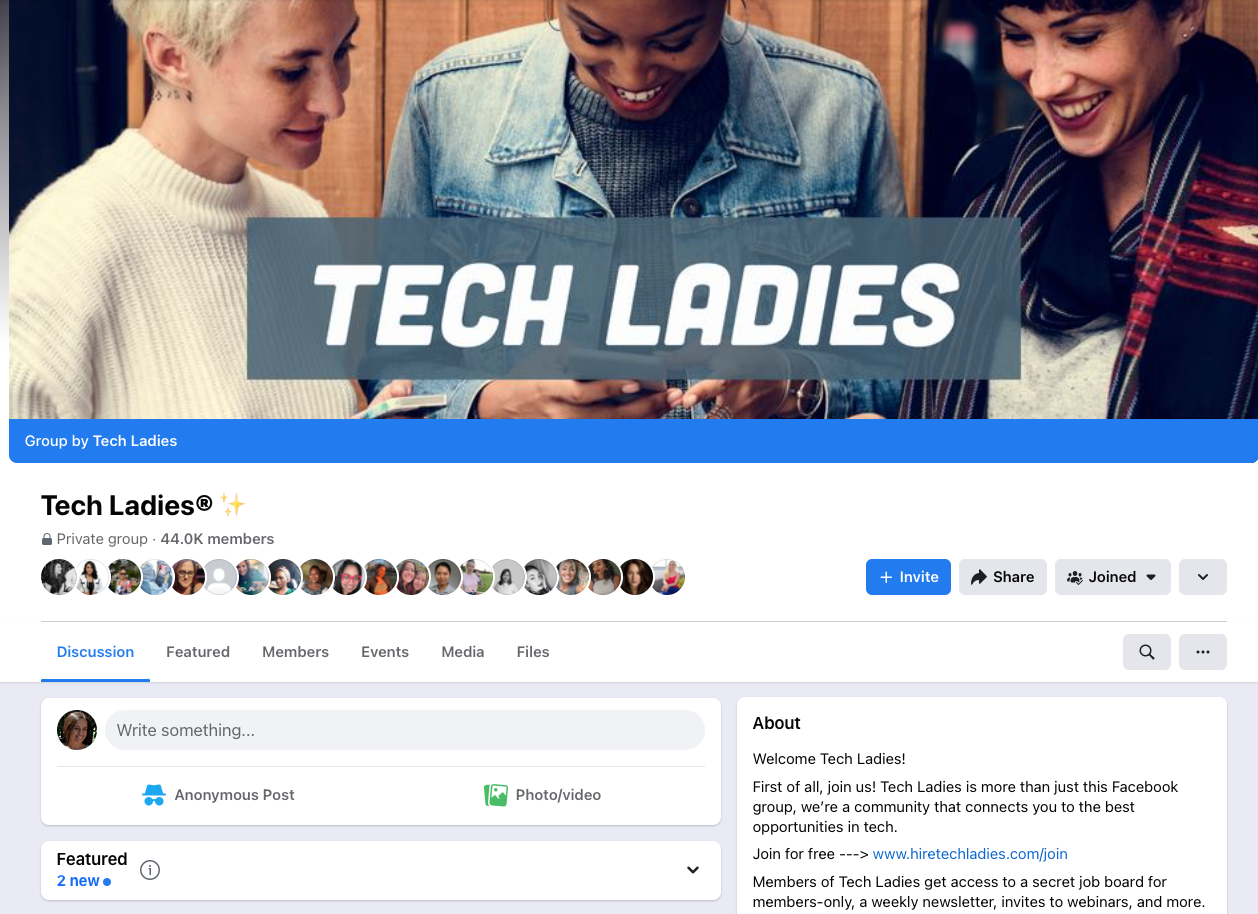Scaling a million-dollar community business to acquisition
How Tech Ladies scaled and sold a bootstrapped community business
Tech Ladies is a multi-million dollar community business. It started in 2015 as a small in-person meetup for women in tech in NY. Since then, it grew to 200,000 members, became a business, and was acquired.
The company was founded by Allison Esposito Medina, who quit her job at Google to run the business full-time a year after it started.
Here’s what you can learn from their business model, their philosophy, and their road to a large acquisition.
Build a community that doesn’t rely on your face
Community businesses tend to have the values and personality of their founder. This is a good thing! At the start of a community Allison says “you can’t hire anyone to do it for you, you have to be the one who cares more than anyone else.”
But it doesn’t mean the brand you build should rely on you on long term. As the community grew, Tech Ladies became about scaling the experience, not scaling the founder’s time (which is impossible!).
As they hired community managers, she stepped back from the expectation that every post would be answered by her. As the community grew, it generated its own value that was outside of her showing up for everyone.
This is something you can (and should) design for. Not only because it allows your community and business to scale beyond you, but also because it creates a better experience for your members. A community should learn to rely on each other’s support instead of just putting one person on a pedestal. That’s a way to scale a business and a community without burning out.
Find ways to grow organically
After hosting a few in-person meetups, Allison set up a free Facebook community to stay in touch in between events. The group soon started to grow on its own via Facebook recommendations and member referrals.
For them, Facebook was a free organic way of acquiring new members. Women would search for communities for women in tech, find their group and join.
Though organic growth has slowed significantly on Facebook since the start of Tech Ladies, and I wouldn’t recommend starting a free community there these days, the lesson here is to find the way you’re able to grow consistently without overspending on customer acquisition.
For Tech Ladies, growing a large group eventually enabled them to launch a private paid membership for those who were interested in more support in their careers. It all started with finding that one repeatable source for new members.
Introduce a business model that leverages your members
Allison didn’t start Tech Ladies with a clear vision for what the business model would be. At the time, there weren’t many business model examples she could follow. (This makes her sharing her story now a huge gift for those who started later.)
Instead they started with the community itself and what members needed. Members were looking for jobs, so they started with a job board and charged employers to be featured. They partnered with companies who wanted to hire more women and charged them to be included. Later on, they were able to offer more services for employers, raise the price of their services, and prioritize long-term partners.
At every step of the way, they created ways for employers to leverage their growing community.
This business model was not only profitable, but it aligned the incentives between the community and the hiring partners. Many of their members are looking to move up in their careers, so having a curated job board of companies who care about hiring women was great for them.
Focus on repeatable structures
Tech Ladies found a handful of community structures that worked and they could repeat over and over again. In their case it was a weekly job drop, quarterly founding membership (Tech Ladies Pro) launches, and a weekly newsletter with jobs and news.
They found what worked and then repeated the same structure for years and years, avoiding getting distracted by new things. Repeatable actions are a flywheel for your community. Members know what to expect and they keep everything moving.
Stay profitable
Allison has talked a lot about the decision to bootstrap Tech Ladies instead of raising money or taking on debt. This was at a time where, especially in tech circles, the obvious way to build a business was to raise money from investors as soon as possible.
By making the choice to not raise money, for them, it meant they probably grew slower than they otherwise would have. But it meant that they significantly reduced their risk.
What prioritizing profitability means is looking for a business model that works early, even if it’s on a small scale, validating ideas, and then staying laser-focused on growing what’s working.
What it enables is a lot more freedom in making business decisions based on values, and finding an exit when the time is right.
Make an exit plan
Tech Ladies was acquired in 2021 and within a year Allison was able to step away from the day-to-day. This was only possible because the business was ready.
They had built a self-sufficient team.
As a business grows, the role of the founder changes over and over again as team members take on different responsibilities. Allison recommends asking yourself: “What happens when I let go of control at different points?”
They had also built a recurring revenue for both a paid community (Tech Ladies Founding Membership/Pro Membership) and corporate hiring partners. Recurring revenue significantly reduces the risk an acquirer takes on.
Whether or not you want to ever sell your business, building with a potential exit in mind gives you options as you grow.
That’s a lesson Allison is taking into her next community business, Juniper.
“When I started Tech Ladies, I was just like ooh this will be fun, let’s have meetups. Then it slowly became a business,” she says. “This time around I’m definitely building a business. I have a plan for what I’m doing from the start and I already know what it looks like to get through the acquisition phase… I know the whole lifecycle of how it could go.”
A lot of us who are building community hesitate when it comes to taking the business side seriously. Staying small can end up hurting not only the business, but in many cases, it limits the longevity and impact of the community. Tech Ladies is an example of what becomes possible when you transition your thinking from “just a meetup” to a business.
We are so excited to have Tech Ladies founder, Allison Esposito Medina as one of our upcoming expert guests in BACB. She’ll be talking about organic growth, building a scalable business model, prepping for acquisition and how she’s used all the lessons from Tech Ladies to build her new venture, Juniper.
Subscribe to the The Business of Community
A weekly email for thoughtful community business founders. Get actionable tips on sustainable business models, community experience, operations and more.








How Project Potluck is gathering people of color in food